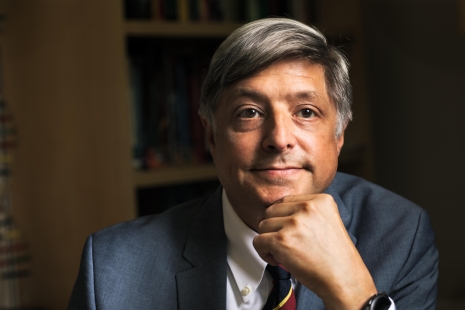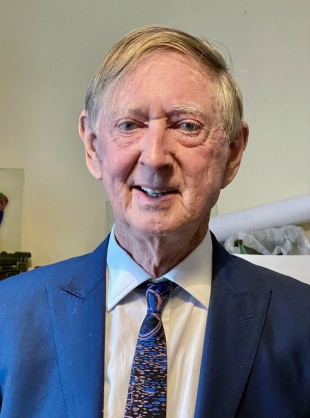
The hunt for the virus causing the 1918 influenza pandemic and how it has informed science and preparedness for future pandemics
Jeffrey Taubenberger (NIAID) and John Oxford (QMUL) are invited to speak at The Norwegian Academy of Science and Letters as guests of Mamelund’s CAS project.
The influenza pandemics of 1918, 2009, as well as the ongoing COVID-19 shows that some Indigenous peoples have extremely high risk of severe disease outcomes, but reasons for this vulnerability is unclear’, professor Svenn-Erik Mamelund says. He is leading the 2022 / 2023 CAS project Social Science Meets Biology: Indigenous People and Severe Influenza Outcomes.
The project has invited two prominent researchers to give guest lectures at The Norwegian Academy of Science and Letters on 8 November 2022.
Prior to coming to NIAID in 2006, he served as Chief of Molecular Pathology at the Armed Forces Institute of Pathology (AFIP) in Washington, DC, a position he held since 1994. He received a B.S. in Biology from George Mason University in 1982, his M.D. in 1986 and Ph.D. in 1987 from the Medical College of Virginia, Virginia Commonwealth University. He did his residency in pathology at the National Cancer Institute.
Dr. Taubenberger’s research interests include influenza and coronavirus, virus biology, pathophysiology, clinical research, and development of a universal influenza vaccine and coronavirus vaccines.
Among his key contributions to the field was the sequence, reconstruction, and characterization of the virus responsible for the 1918 influenza pandemic, which killed 50-100 million people worldwide.
He is the recipient of numerous awards and a frequent speaker at national and international meetings. He was elected to membership in the Association of American Physicians and the American Academy of Microbiology. He has published over 250 papers and numerous book chapters. His research has generated national and international publicity since 1997.
In his presentation, Taubenberger will talk about the search for the 1918 virus with critical samples from Brevig Mission, Alaska, and the key lessons from 1918 reconstruction studies regarding origin and pathogenesis. He will also talk about future planning regarding universal influenza and universal coronavirus vaccination.
John Oxford is Professor Emeritus of Virology at Queen Mary University of London, UK. He was trained as a virologist by Geoffrey C. Schild and Sir Charles Stuart-Harris at the Lodge Moor Infectious Disease Hospital in Sheffield, before being appointed Lecturer in Medical Microbiology. Oxford worked at the Common Cold Research Unit in Salisbury, before moving to Canberra, Australia, to work with Robert Webster and Graeme Laver at the John Curtin School for Medical Research.
Oxford’s research interest is the pathogenicity of influenza, in particular the 1918 Pandemic Influenza, which he combines with conducting clinical trials using new influenza vaccines and antiviral drugs. When working at the London Hospital, Oxford and Rod Daniels of the National Institute for Medical Research identified lung sections from patients with 1918 influenza. Together with Jeffery Taubenberger, they obtained sequence and other data on the virus.
He is President, Scientific Director and founder of the research company Retroscreen Virology Ltd, which he established in 1989 with the help of EU funding to create the next generation of antivirals and vaccines in the field of biomedical research.
Together with his predecessor, Stuart-Harris, he wrote ‘Human Virology’, published by Oxford University Press, which is now in its 5th edition. He has published over 300 scientific papers and edited three other books. He is a frequent contributor to science-based TV and radio shows in the UK, USA, Germany and Holland.
In his presentation, Oxford will journey back in time to 1917 France and Newfoundland, to look at the work of some of his predecessors from the University of London’s Teaching Hospitals. He will tell us how research from the past, conducted during the 1917/1918 pandemic, can contribute to science and research today.

